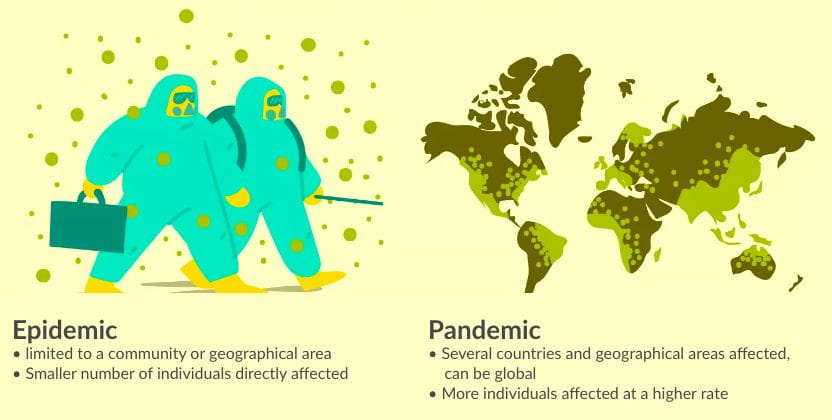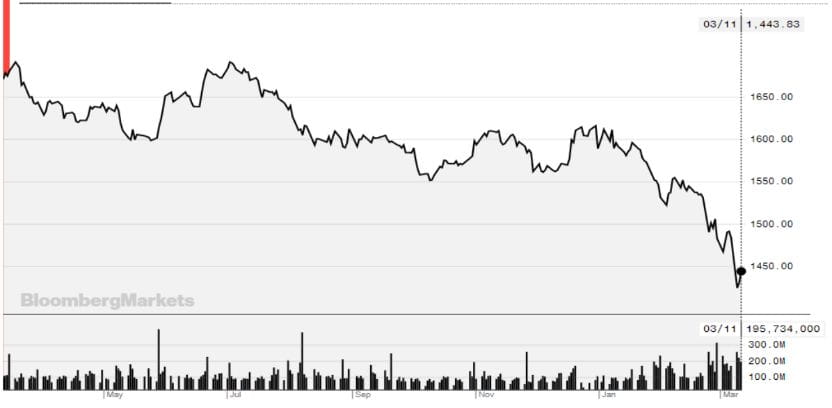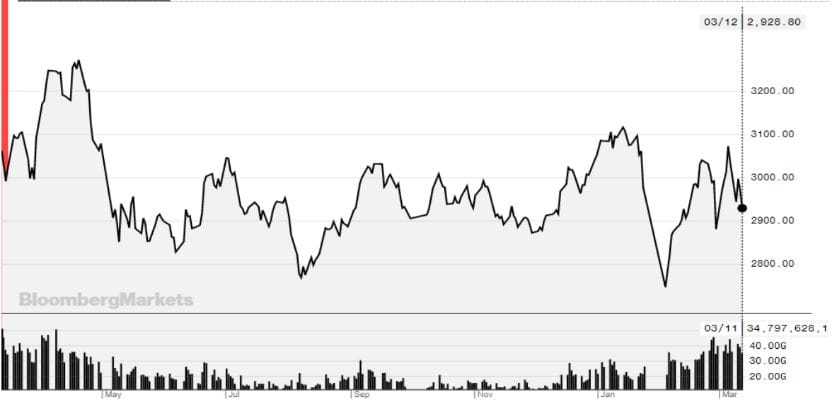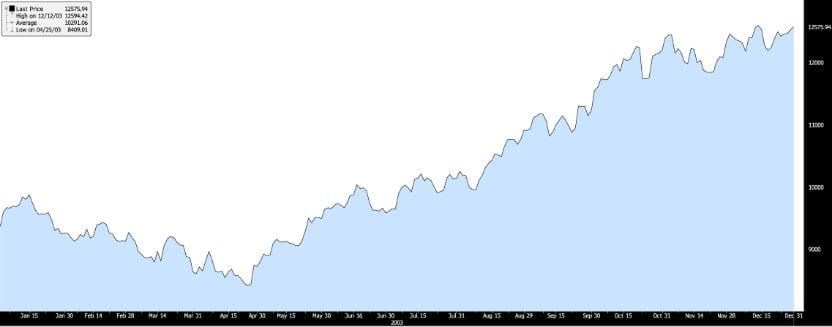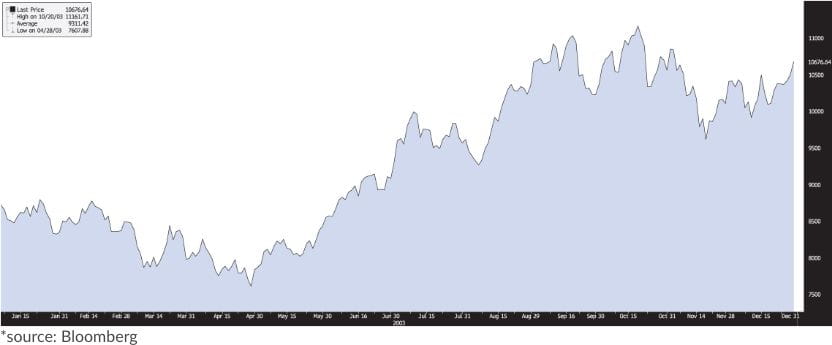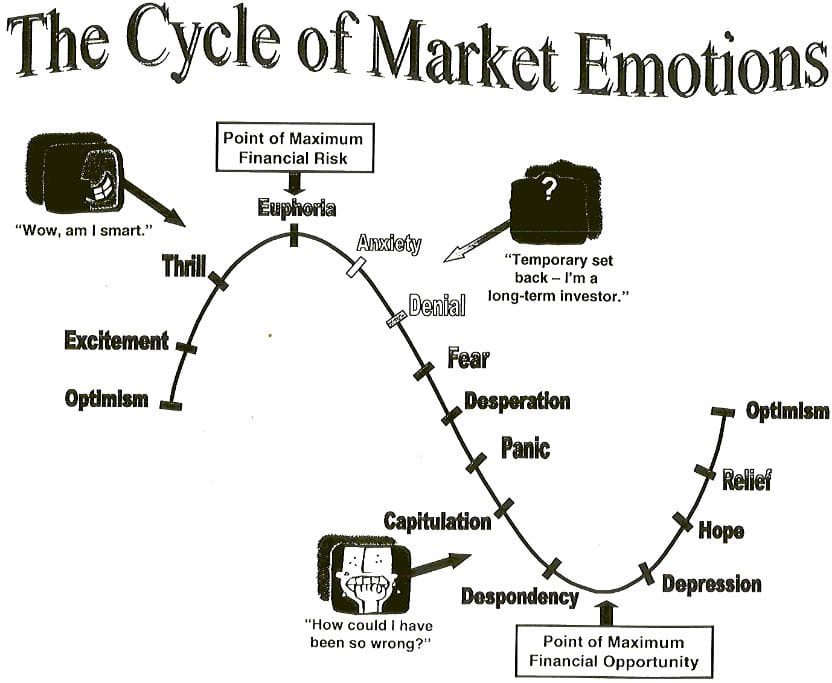Brace yourself - 2020 is expected to be a difficult year. We are barely three months into the year and we’re already in the thick of a global pandemic. No expert could have predicted the impact of Covid-19, but we’re already seeing signs of a global economic downturn.
On March 11, the World Health Organisation (WHO) changed its designation of Covid-19 from epidemic to pandemic. An epidemic is an outbreak of disease that spreads quickly and affects many individuals at the same time. When the disease spreads to a larger geographical area, it becomes a pandemic.
Epidemic vs Pandemic
BOTH: sudden and rapid outbreak of disease
Source: https://www.verywellhealth.com/difference-between-epidemic-and-pandemic-2615168
Businesses are taking a cautious approach, supply chains are impacted and consumers are avoiding crowded places for fear of contamination. Restaurants and public places have been ordered to close. Italy is on a nationwide lockdown, and Malaysia is on restricted movement until 14th April 2020. As at end of March, Covid-19 has infected more than 787,000 people worldwide. Even celebrities like Tom Hanks are not immune.
On March 9, we saw the beginnings of a bear market, with the VIX (commonly used as an indicator of implied market volatility) breaking the 80-point mark. On March 12, all asset classes including gold and the US Treasury dropped, with current year-to-date performance at negative levels. Gold increased marginally.
The most common immediate reaction is to panic when you see markets start to plunge in response to the outbreak. Arrrrgh! I’m losing money! Do I cut my losses now and hope for the best?
It’s not easy advice to take, but panic selling when stock prices dive and buying back when they recover is the last thing you want to do.
Take a deep breath, lift your finger off the sell trigger, and take a broader view of the individual markets.
Looking at the FBMKLCI over a year-long period, we can see that since July 2019, the market has been on a downward trend, with occasional bumps upwards. We can follow the trend all the way back to 2018.
As for the Shanghai composite index, a one-year view reveals that the market has been stable, with occasional bumps and corrections. The index took its sharpest plunge between January 22 to Feb 3, 2020, falling 10.26% to 2,746.61 points.
FBMKLCI - 1 year
Shanghai Composite Index - 1 year
*Source: Bloomberg
Yes, but what does this mean for me?
Taking a broader view reveals that Covid-19 alone has not had as much of an impact on the markets as initially perceived. This tells us that taking a long-term view on your investments is the best stance for now. Your long-term investment goals shouldn’t change because that’s exactly what they are - long-term investments. While your portfolio might take on a different structure, your long-term goals are still the same.
A slower recovery, but a recovery nonetheless
The closest comparison to the current Covid-19 pandemic that comes to mind is the SARS (severe acute respiratory syndrome) outbreak in 2003, which affected more than 8,000 people in 29 countries, with a mortality rate of 774 people worldwide.
It’s always unfortunate to have any death toll at all, but we’ve also learned that some investment opportunities can emerge in times of global crisis. What did we learn from SARS?
Looking at regional capital markets, emerging stock markets outside China suffered greater losses in the early days of SARS, compared with the first few weeks of Covid-19.
SARS was largely contained within China, and since 2003, the nation’s influence on the global economy has increased through trade and even tourism. China’s economy is now the world’s largest, accounting for 16% of global GDP, from 4% in 2002.
Today, whenever China sneezes, the world catches a cold, or - to put it morbidly - Covid-19. Although the overall global count for Covid-19 cases is higher, most cases were registered within China.
We also need to take into consideration that the Chinese government may have underreported SARS’ infection rates to avoid being cut off from the rest of the world. The country was just beginning to establish itself as a global superpower. During that period, there were also various geopolitical events occurring, such as the US invasion of Iraq and, closer to home, bombings in Bali and Jakarta.
Global health pandemics cause panic, which causes a knee-jerk reaction in the markets. In 2003, the Hang Seng index lost 3.85%, reacting to the WHO’s global alert, while the Nikkei bottomed at -5.96%. An emergency meeting between ASEAN countries and China in April 2003 triggered a selling frenzy, resulting in Asian markets falling further.
Hang Seng index 2003
However, by the time the WHO announced that the end of SARS was near, these markets almost immediately bounced back to pre-outbreak levels, or even higher.
According to the RHB Research Team, Covid-19 is likely to drag down the economy in the first half of 2020 and this will be reflected in companies’ Q1 earnings reports (April-May). The full extent of the economic disruption is still unknown, and companies have already begun to issue warnings that their earnings may not meet the Q2 revenue guidance. The second half of the year will very much depend on how the outbreak plays out. Covid-19 also emerged at a time when global markets were already lagging.
So, when will the markets bounce back?
Because China’s influence on surrounding markets has deepened since 2003, an immediate post-SARS style bounce back is unlikely to happen, according to RHB Wealth Management. But that doesn’t mean there isn’t going to be a recovery at all.
“At this moment, a V-shaped recovery is almost unlikely. We are expecting a U-shape recovery in the economy. At this moment, COVID-19 is very much contained in China, hence, we believe that China might be the first to recover in the second half of 2020, in terms of economy,” says RHB Wealth Management.
Keep calm and stay invested
Short periods of uncertainty will always emerge, but a well-structured portfolio is designed to protect against the effects. A good investment strategy involves setting a long-term investment goal and sticking with it.
Source: https://seekingalpha.com/article/68412-a-look-at-the-cycle-of-market-emotions
This is the best time to ask your fund manager to review your portfolio to make the best of any investment gems that Covid-19 may have unearthed. Persistently negative market sentiment and weakness should be viewed as opportunities. Buy in on the dips.
No one can really predict the outcome of Covid-19, but the best defence (and possibly offence) during these times is a well-diversified portfolio. A wise person (possibly a chicken farmer) once said, “Never put all your eggs in one basket.”
Where, then, shall we put the eggs?
The Covid-19 outbreak appears to have caused a downward pressure on the capital markets. Stocks particularly impacted were those in the hospitality line - airlines, airports and tourism. If the outbreak isn’t contained by the second half of 2020, the downward pressure will seep into the electronic manufacturing sector as inventory hits bottom following a slowdown in manufacturing activities.
In line with this, February saw a large outflow of RM10.1 billion from both the equity and fixed income markets. In the equity market, a net outflow of RM1.97 billion was recorded, relative to a much smaller outflow of RM138 million in the previous month.
Similarly, an outflow of RM8.2 billion was recorded in the fixed income market versus an inflow of RM3.6 billion in January. The local stock market is now mainly supported by local players.
The elevated risks and uncertainty mean that, in the near term, the priority for investors is the preservation of capital – with core holdings in defensive sectors and resilient high-yield stocks.
A robust response from central banks and governments offers a silver lining for asset prices. Interest rates may be further cut; more sweeping tax cuts could also be ordered. If the outbreak is contained, central banks will have just turbo-charged equity markets. It’s helpful to note that Bank Negara Malaysia recently announced a cut in its Overnight Policy Rate (OPR) to 2.5%, the lowest figure in a decade. As soon as the virus is contained, the local equity market will be flush with cash.
As most central banks remain accommodative to the impact of Covid-19, the fixed income sector acts as a good buffer for your portfolio, cushioning the impact, according to RHB Wealth Management.
Key theme in fixed income is that the low-yield environment is here to stay as interest rates are likely to fall further in the medium to long term. The global economy is likely to put in a sub-par performance in the near term as a result of the disruption in the supply chain,” says RHB Wealth Management.
Good old-fashioned gold is also a good buffer for any investment portfolio in tough times. At this point, gold looks to be more stable, and quantitative easing measures by central banks could give gold a chance to shine.
Your mum was right about investing in gold although there are better ways to do this than buying up jewelry.
Source: Lipper as at 30 March 2020
For equities, e-commerce and tech stocks are areas that could emerge as surprise gems. With an increasing number of companies announcing work-from-home initiatives and reducing the number of face-to-face meetings, there is an immediate rise in the number of people using remote working platforms and video calling services. While many companies, prior to the outbreak, were hesitant to reduce their office headcounts and pursue more digitised solutions, Covid-19 is forcing them to speed up the digitisation of their processes. In the long term, digitisation will reduce costs and increase productivity, while reducing the impact on the environment.
Kids are staying home from school, too. With online education ramping up as students stay at home to study, sales of tablets and laptops to access these online services have increased.
When people avoid leaving their homes to go shopping, they use e-commerce platforms to buy necessities and medical supplies. Supermarket chains have been actively upgrading their online services and offering promotions to cater to the increase in demand.
For example, JD.com and Alibaba have implemented fee waivers and even announced drone deliveries to assist in virus response efforts. JD’s affiliate Dada, which delivers for Walmart and local grocery chains, said sales more than quadrupled from a year ago during the 10 days of the Lunar New Year holiday.
JD said its own sales of fresh products increased more than three times compared with last year, selling 15,000 tons of fresh products during the holiday period. Over the past month, its drivers delivered 71,500 tons of rice, flour and other grains — 20 times more than the same period last year, — 27 million liters of cooking oil and 50,000 tons of meat, eggs, vegetables and other fresh products. Sales of rice increased 500% year on year.
A welcome offshoot from the increase in e-commerce activity is the concurrent increase in logistics activity.
Cainiao Network, Alibaba’s logistics unit, said it would offer warehouse space rent-free through the end of March for businesses based in Wuhan. Similarly, in Malaysia, logistics companies could see an increase in deliveries. With a higher volume of items being transported, companies offering warehousing solutions will likely benefit as more space is required to house these items.
When we connect the dots, we can see that the next sector to benefit would be companies that manufacture packaging for logistics companies as more items move through the logistics chain.
We’ve all been to pharmacies to buy hand sanitisers, masks and Vitamin C tablets, only to be greeted by empty shelves. Looking at this from an investor standpoint, the healthcare and medical supplies sector is another area to consider as a long-term investment. Companies with stakes in pharmacy chains will also see a boost in sales revenue.
That’s great, but what about sectors that are negatively impacted by Covid-19? I’ve got shares in airlines!
Whole nations are in lockdown mode, flights have been cancelled, airports are seeing a decline in traffic, hotels are reporting fewer occupants and holidays have been postponed. However, once the world has been given the all-clear from Covid-19, travel will pick up to pre-Covid-19 levels as holidaymakers from China venture out into the world again. Hotels will see an increase in bookings, and airports will revert to the crowded places they were.
Look into the big caps with solid earnings growth potential that will survive the impact of Covid-19 and buy when they’re undervalued!
How to take advantage of these opportunities
Overall, maintaining a well-planned diversified portfolio is the best advice any fund manager will tell you. RHB Wealth Management is a team of experienced and knowledgeable individuals ready to help you make the most of this time.
If you are an existing RHB Premier Customer, contact your RHB Relationship Manager to discuss your strategy. If you are a new RHB Premier Customer, visit your nearest RHB Premier Centre and join the RHB Premier family to enjoy exclusive privileges!
QUICK Q&A:
RHB Wealth Management answers your questions
Q: In which products/sectors do I invest in a time like this?
A: In times of volatility, gold and bonds can bring the most reassurance, being the “safer” assets. In terms of equity, healthcare, e-commerce, domestic express delivery services, online gaming, online education, selected tech stocks and online grocers are good picks.
Domestic express delivery services could see a boost in revenue as more users shop online, especially for groceries. Online activities continue to remain robust as users stay home and spend more time online. This includes mobile gaming, e-commerce platforms and online supermarkets.
At RHB, we offer multiple solutions to fit your risk profile, from Retail Bonds, Capital Protected Structured Investments. Unit Trust Funds cover a variety of options, from income to alternatives such as gold funds, or investing in the gold mining companies themselves.
Q: How important is it to maintain a diversified portfolio?
A: At this juncture, a diversified portfolio is the best solution for investors. Having both fixed income and equity during a global financial crisis will create a perfect storm. Performance in equities might have dropped, but this creates pockets of opportunities in fixed income. This is the time to rebalance your portfolio to take advantage of these opportunities while remaining resilient.
If you are risk averse, RHB works with the treasury department to offer Capital Protected Investments such as the Rainbow Structure Investments which offer a dynamic and diversified portfolio of fixed income funds to clients.
These products leverage on the option to invest in three underlying assets on a weightage basis and automatically allocates the funds based on the performance ranking of the underlying asset. This is a unique approach, essential during volatile times like this. The tenure of these products is three years.
Q: Is there such a thing as a recession-proof portfolio?
A: Unfortunately, no. What you can do instead is create a portfolio that is risk averse. The only loss would be opportunity cost.
Q: What are the positives that you can see during this tough economic climate?
A: We still don’t know the extent of the impact of Covid-19 but what we do know is that all countries has reacted with huge scale via both monetary policy measures such as reducing interest rates and Quantitative Easing to increase liquidity and fiscal stimulus.
Q: Is the market overreacting?
A: Sharp share sell-offs during the initial stages of Covid-19 sparked off a panic. These figures were boosted by high-frequency algorithm trading. In this current climate, fund managers should remain rational and not rely on this form of trading which tends to trigger irrational behaviour in the market. We can expect some volatility in the market. The market will reach a point of equilibrium before stabilising.
Q: Does that mean that markets are now cheap?
A: We wouldn’t say that markets are “cheap”. It depends on the stock. What you can do is identify potential opportunities and reassess risk bond by bond and stock by stock. In RHB, we provide a range of funds from mixed asset, fixed income to equity funds. Each also cover wide aspects from geographical allocation and sectorial as well. Hence, it will be advisable to understand your risk appetite before investing into the market which is volatile at this current juncture. To have a wider perspective in investments, feel free to call your Relationship Manager to help you decide how to rebalance your portfolio.
